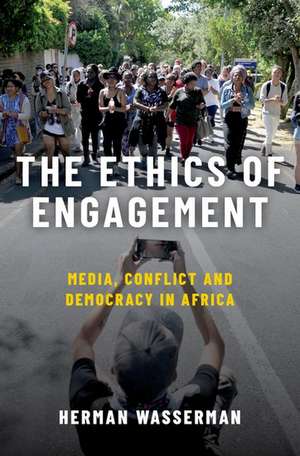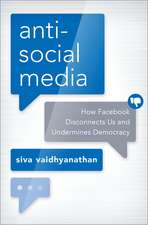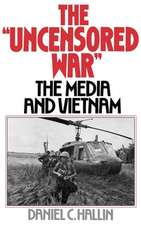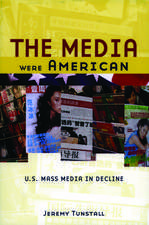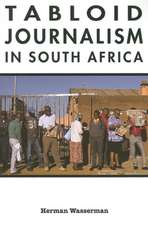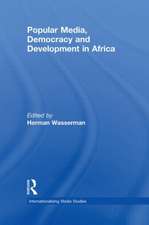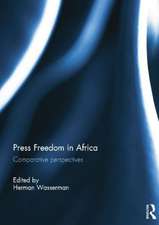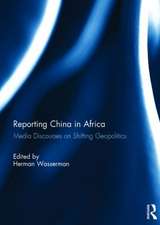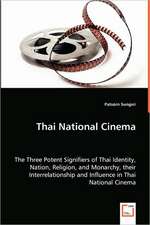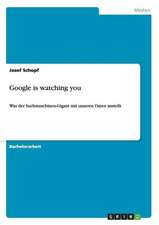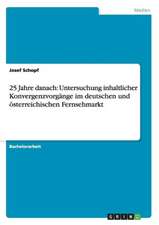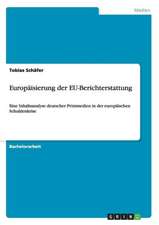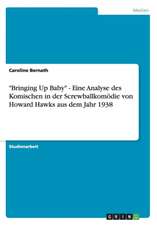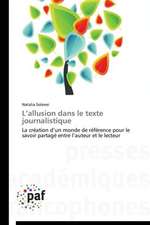The Ethics of Engagement: Media, Conflict and Democracy in Africa
Autor Herman Wassermanen Limba Engleză Hardback – 3 mar 2021
Preț: 527.48 lei
Preț vechi: 705.48 lei
-25% Nou
Puncte Express: 791
Preț estimativ în valută:
100.95€ • 104.28$ • 84.01£
100.95€ • 104.28$ • 84.01£
Carte disponibilă
Livrare economică 21-27 februarie
Preluare comenzi: 021 569.72.76
Specificații
ISBN-13: 9780190917333
ISBN-10: 0190917334
Pagini: 216
Dimensiuni: 239 x 165 x 23 mm
Greutate: 0.48 kg
Editura: Oxford University Press
Colecția OUP USA
Locul publicării:New York, United States
ISBN-10: 0190917334
Pagini: 216
Dimensiuni: 239 x 165 x 23 mm
Greutate: 0.48 kg
Editura: Oxford University Press
Colecția OUP USA
Locul publicării:New York, United States
Recenzii
Wasserman's book is engaging and accessible...The Ethics of Engagement is a great book to read, with lots of food for thought for media companies, newsrooms, editors and journalists, academics and consumers of media.
Wasserman has written a wonderfully current, positive and important book, one that will be discussed and referred to for many years to come.
In this book of great relevance to the post-truth era, Wasserman masterfully revisits the important question of media ethics: If conflictual relations are part and parcel of society, and indeed, of democracy, how does the media provide for an ethics of representation informed by a careful negotiation and navigation of the delicate balancing act that does justice to the nuanced complexities of the sensibilities at stake?
This is a magnificent book, brilliant in depth and profound in analysis and problem resolution. It sets a new standard of international engagement with the resources of the South instructing the world. This dynamic alternative theory, the ethics of dialogic listening set in culture and structures, will revolutionize media education and as a normative framework for peace will transform the media's role in conflict worldwide.
Drawing examples from different countries, this book casts a critical eye over Africa's democratic journey and examines the link between media, conflict and democracy. It contends that the relationship between media and democracy in Africa is complex, giving rise to fundamental questions about the media's ability to perform democracy affirming roles prescribed by Western journalistic norms. The book offers a vital critique of the capacity of media to intervene ethically in conflicts, which inevitably arise out of transitions to democracy, and to foster democratic culture in the context of Africa's historical, structural and socio-economic realities.
In a book that grapples with tough and hard-hitting subjects, particularly the oft-perceived relationship between conflict, media and democracy, Herman Wasserman shows why he remains the to-go-to expert on media studies in the Global South with another brave yet refreshingly rigorous analysis on conflicts and how, despite obvious twists and turns, the media could positively contribute toward the path of democratization.
Wasserman has written a wonderfully current, positive and important book, one that will be discussed and referred to for many years to come.
In this book of great relevance to the post-truth era, Wasserman masterfully revisits the important question of media ethics: If conflictual relations are part and parcel of society, and indeed, of democracy, how does the media provide for an ethics of representation informed by a careful negotiation and navigation of the delicate balancing act that does justice to the nuanced complexities of the sensibilities at stake?
This is a magnificent book, brilliant in depth and profound in analysis and problem resolution. It sets a new standard of international engagement with the resources of the South instructing the world. This dynamic alternative theory, the ethics of dialogic listening set in culture and structures, will revolutionize media education and as a normative framework for peace will transform the media's role in conflict worldwide.
Drawing examples from different countries, this book casts a critical eye over Africa's democratic journey and examines the link between media, conflict and democracy. It contends that the relationship between media and democracy in Africa is complex, giving rise to fundamental questions about the media's ability to perform democracy affirming roles prescribed by Western journalistic norms. The book offers a vital critique of the capacity of media to intervene ethically in conflicts, which inevitably arise out of transitions to democracy, and to foster democratic culture in the context of Africa's historical, structural and socio-economic realities.
In a book that grapples with tough and hard-hitting subjects, particularly the oft-perceived relationship between conflict, media and democracy, Herman Wasserman shows why he remains the to-go-to expert on media studies in the Global South with another brave yet refreshingly rigorous analysis on conflicts and how, despite obvious twists and turns, the media could positively contribute toward the path of democratization.
Notă biografică
Herman Wasserman is Professor of Media Studies at the University of Cape Town, South Africa. He has published widely on journalism in Africa, media ethics, and global media. He is Editor-in Chief of African Journalism Studies, Editor of the Annals of the International Communication Association and Associate Editor of Communication Theory. He is a Fellow of the International Communication Association and his awards include the Georg Foster Prize from the Alexander von Humboldt Foundation and the Neva Prize for Journalism Theory from the University of St Petersburg.
